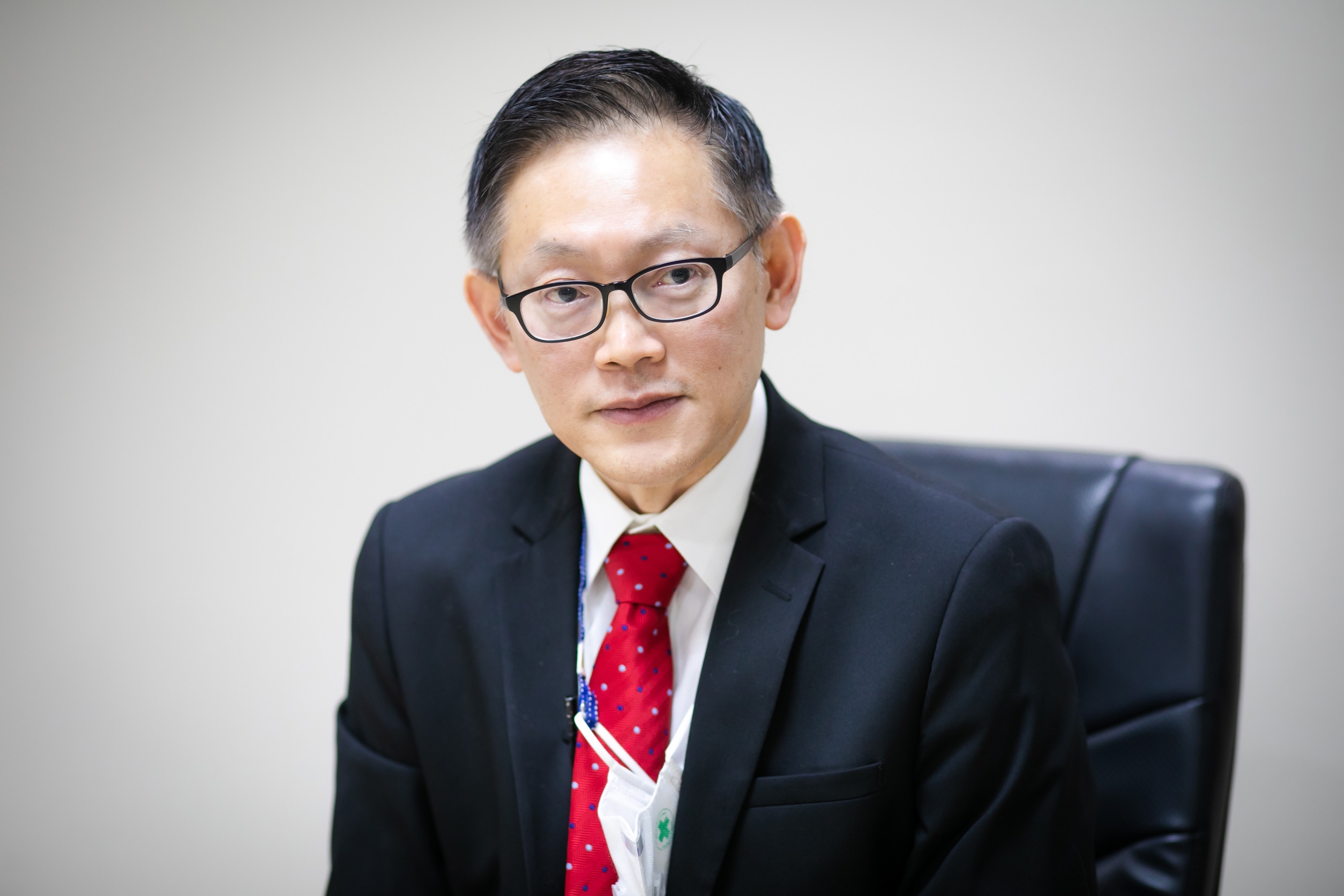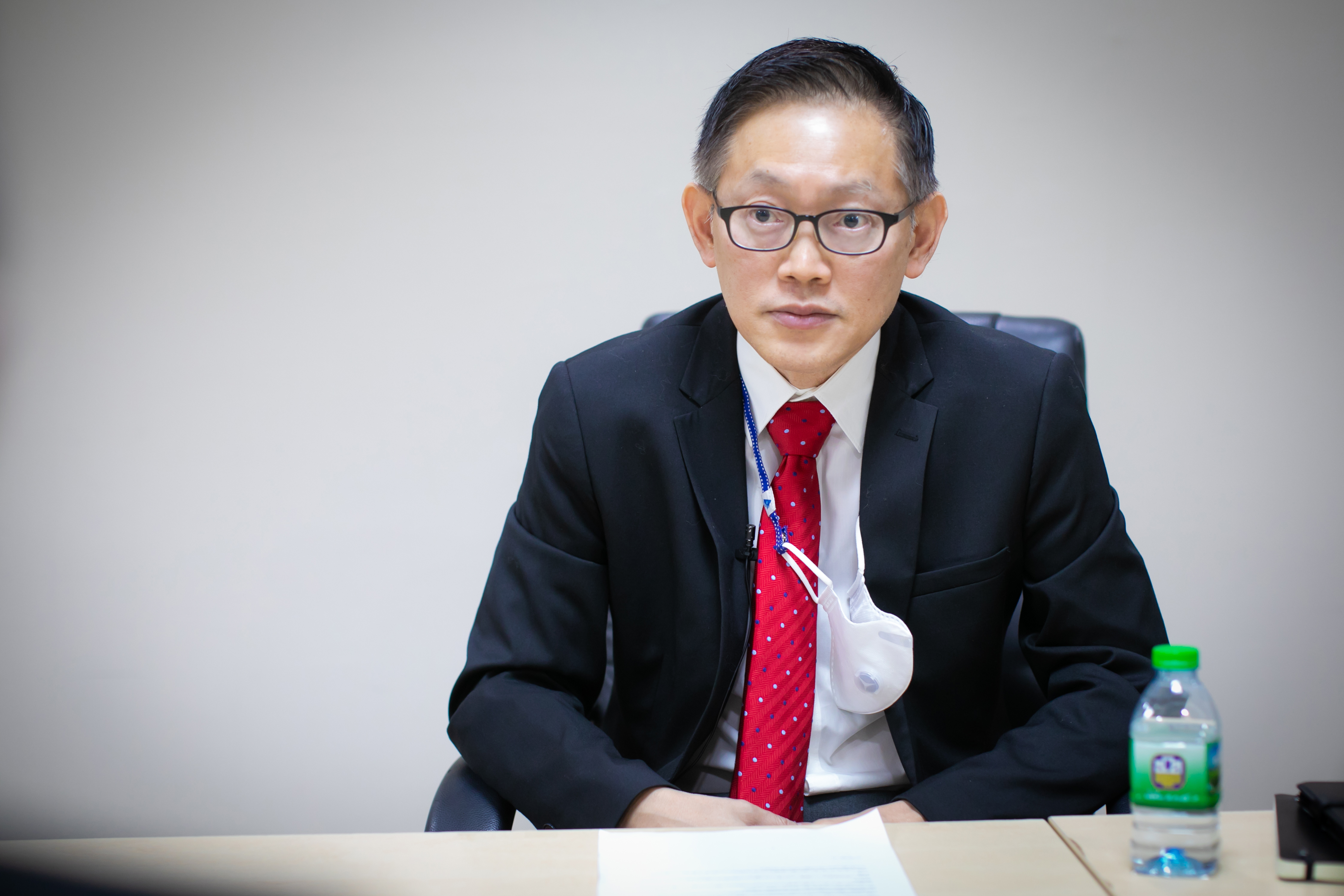
- Home
- DescriptionNews
Any suspected symptoms deserve attention until actually ruled out: Dr Jadej

Any suspected symptoms deserve attention until actually ruled out: Dr Jadej
Confidence in the COVID-19 vaccine remains thin in the air. Any time news breaks about a fresh case of suspected adverse reactions or side effects of the vaccine being experienced by someone, the already low public confidence is shattered even more.
And despite an assertion by the National Health Security Board that all COVID-19 vaccine recipients will be taken good care of and compensated for in the event of them encountering adverse events after vaccination, a lot of questions have arisen over the financial compensation programme for people suffering serious enough side effects of the vaccine.
Dr Jadej Thammatach-aree, Secretary-General of the National Health Security Office (NHSO), has therefore offered in a recent interview clarification of terms and conditions of the compensation programme.
Basically, vaccine recipients should never decide on their own whether symptoms they are experiencing after vaccination are side effects of the vaccine or not, said Dr Jadej.
Instead they should notify the NHSO about these symptoms and the NHSO’s sub-committee responsible for processing a request for financial compensation in each health region, comprising a sufficient number of medical experts, will decide on the request, he said.
And if the sub-committee agrees that the case should be compensated for, the compensation will be then paid within five working days, he said.
All suspected cases should be first assumed to be true
The fact is these COVID-19 vaccines are currently approved for emergency use only, which means some side effects of them will possibly be experienced by a number of vaccine recipients, he said.
Even those vaccines fully developed may still have some side effects and are not totally safe, he said.
After all, the risk of suffering side effects of the COVID-19 vaccines cannot compare with the risk of developing severe or deadly symptoms as a result of contracting the novel coronavirus that causes COVID-19, he said citing the data collected from more than 100 million injections of the vaccines worldwide.
“We can’t say there aren’t any such side effects. But several side effects can actually be mitigated or cured [if a medical intervention is performed in time],” he said.
That explains why all vaccine recipients are advised to remain at the vaccination venue for about half an hour after vaccination for observation of possible side effects of the vaccine that usually occur in the first 30 minutes after injection, he said.
Especially in case of death that follows a recent COVID-19 vaccination, he said, the death should be first assumed to be a result of the vaccination, considering that the vaccine has been approved for emergency use only.
“I believe every medical doctor should first bear in mind such a death may have something to do with the vaccine injected and then continue proving until it is clearly known if it was the vaccine or not that caused the death,” he said.
So, personally, he said, he was wondering why some medical doctors were quick to rule out the COVID-19 vaccine as the possible cause of some recent deaths reported by the media to have occurred after vaccination.
These medical doctors should have presumed the vaccine could be the cause of these deaths until it is actually ruled out in a formal investigation, he said.

All requests for compensation are welcome
The financial compensation being offered in case of COVID-19 vaccination adverse events, allowed under Section 41 of the 2002 National Health Security Act, is simply preliminary assistance.
That explains why no results of a formal investigation into these suspected vaccination adverse events are required before the financial compensation is paid to the affected party requesting for the financial assistance, he said.
“Just submit your requests and the NHSO’s 13 sub-committees in all health regions nationwide will examine your cases with the help of a panel of medical experts who will base their decisions on your medical history and all other information concerned,” he said.
“So, please submit every suspected case to the sub-committee even if your doctors told you it wasn’t the vaccine that caused these suspected symptoms. The sub-committee will examine and decide on the case, not your doctors or anyone else,” he said.
Since the NHSO hasn’t specified as to how long from vaccination until a person begins experiencing symptoms suspected to be vaccination adverse events, he or she may still submit a request for the compensation even if it is two weeks after vaccination.
And even though it will be less likely to be the vaccination that causes such symptoms, one should never judge on his or her own that any suspected symptoms aren’t the vaccine’s side effects, he said.
No recalls of money already paid
In case of illnesses or injuries suspected to have been caused by side effects of the COVID-19 vaccine, even though the NHSO has indicated that only “persistent conditions” will be compensated for those suffering temporary conditions can still submit their cases to the NHSO for consideration, he said.
The reason is, he said, some patients may not be totally aware of their symptoms that actually developed from the beginning until they realise they actually have these symptoms when later asked about them by their doctors.
“A key reason behind our willingness to receive all complaints about possible side effects of the vaccine is because we would like to hear about as many as possible side effects of the vaccine. And there are no better ways to know than to listen to the vaccine recipients,” he said.
“Without feedback from vaccine recipients, improvement in the vaccine development won’t happen,” he said. “We also want to know what type of side effects of the vaccine we will have to prepare to cope with when a larger number of people get vaccinated.”
“Everyone has to understand that the one who will decide as to who will or will not be compensated for isn’t doctors handling the vaccination or vaccine recipients themselves, but the NHSO’s sub-committee,” he said.
“And once again the money already paid as preliminary assistance to affected parties under the sub-committee’s decisions won’t be recalled, no matter what happens later,” he said.
Payment guaranteed to be done in five working days
As soon as the sub-committee approves the compensation, the payment is normally done in five working days after that, said the NHSO Secretary-General.
Over the past three weeks after the compensation programme was launched, about 260 requests for the compensation have been received, 162 of which have already been compensated for, he said.
The most common form of symptoms compensated for was persistent numbness, which ranged from one day to a month, he said.
A total of six requests for death compensation have also been received, he said.
Request submission is very simple as only some information is needed when filling in a compensation request form, namely the national ID number, the name of the vaccination venue, symptoms and a bank account number, he said.
The request form may be submitted to the vaccination venue, the Provincial Public Health Office or the NHSO’s Regional Offices, he said.
And following the launch of the mass vaccination drive on June 7, 2021, the NHSO now allows health volunteers across the country to receive filled in compensation request forms from the affected vaccine recipients and submit them on their behalf to the NHSO through the three main channels aforementioned, he said.
Active case finding on social media
Moreover, the NHSO’s Regional Offices are now assigned to monitor posts on the social media that may contain a complaint about possible COVID-19 vaccination adverse events and promptly contact the persons posting the information online in order to help them to seek compensation, he said.
And in the event that the number of cases of suspected vaccination adverse events surges and overwhelms the existing 13 sub-committees, more sub-committees will be appointed to ease the workload, he said.
“More importantly, some representatives of the public will possibly in the future be allowed to sit on these sub-committees as well, in a bid to garner more views from the public on the compensation programme,” he said.
Because the compensation programme for adverse events following COVID-19 vaccination is such a new process in Thailand, it will need more time to be adjusted and fine-tuned, he said.
Any questions about the compensation programme are therefore encouraged to be asked without hesitation to the NHSO hotline 1330.

